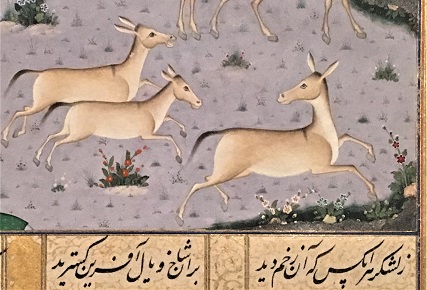Marwan ibn Abi Hafsa was reciting his poems before my father. He said, "If I could add some of your verses to mine I would be rich." At this, my father invited his rhapsode to recite them. So he recited a poem of Bashshar's rhymed in lām, and, when he got to the verses (meter: ṭawīl)—
A depiction of you has been sent abroad by me.
Off [my poem] went, and did not fail to arrive at inhabited areas.
To the East and West I cast it, and the land swarmed
with its reciters and travelers [who recited it elsewhere]
—Marwan said, "O Abu Mu‘adh! [That is, Bashshar.] Other poets are storks, but you are a falcon."
And Muhammad ibn Yahya said:
Bashshar's verse was imitated by Muhammad ibn Hazim al-Bahili (meter: wāfir):
The meaning I intend forbids I make my poem long.
My expert sense of [formal] correctness does the same.
By making a short selection, and employing brevity,
I shall curtail the length of my answer,
and when I perform it for parties of travelers
rhapsodes and riders will say it back to one another.
From The Ornament of the Learned Gathering
by Abu ʿAli Muhammad al-Hatimi






